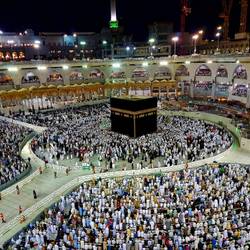Ghana is a country located along the West Coast of Africa, known for its rich culture, history, and natural beauty. As one of the more stable countries in West Africa, Ghana is home to several major cities that serve as centers of social and economic life. Cities like Accra, the capital of Ghana, Kumasi, Takoradi, and Tamale each have their own unique attractions, offering a blend of ancient traditions and modernity. Accra, for example, is a bustling metropolitan city with many interesting tourist spots, ranging from traditional markets to stunning beaches.
This article will discuss various things you need to prepare before your trip to Ghana, from visa requirements to essential information about the local climate. By understanding these aspects, your journey to Ghana will be more comfortable and enjoyable.
Baca juga: Travel Advisory: Monaco Travel Guide
Ghana Visa Requirements
Ghana, a country in West Africa, offers stunning cultural richness, a rich history, and breathtaking natural landscapes. Before embarking on your journey, it is essential to understand the entry and exit procedures, including visa requirements, customs regulations, and available transportation options.
Visa Requirements for Visiting Ghana
As an Indonesian citizen, you will need a visa to enter Ghana. Here is the key information regarding visa applications:
Type of Visa: For tourism, you will require a Ghana tourist visa, which is typically valid for stays of up to 30 or 60 days, depending on your application and approval.
Visa Application Process
1. Where to Apply: You can apply for a visa at the Embassy of Ghana in Jakarta or the nearest representation if applicable.
2. Required Documents:
3. Fees and Processing Time: Visa fees range between USD 60 and USD 100, depending on the visa type and length of stay. Processing typically takes 5–10 business days.
Customs Regulations in Ghana
Understanding Ghana's customs regulations will help you avoid any legal issues during your trip.
1. Prohibited and Restricted Items:
Alcohol: Up to 2 liters of alcoholic beverages.
Cigarettes: Up to 200 sticks.
Perfume: In reasonable quantities for personal use.
2. Declaration of Items:
Entry and Exit Procedures in Ghana
Upon arrival in Ghana, you will undergo the following checks:
1. Arrival Procedures:
2. Departure Procedures:
Discover flight with Traveloka
Thu, 12 Feb 2026

Turkish Airlines
Jakarta (CGK) to Accra (ACC)
Start from Rp 16.676.670
Thu, 29 Jan 2026

Turkish Airlines
Jakarta (CGK) to Accra (ACC)
Start from Rp 16.704.728
Thu, 12 Feb 2026

Ethiopian Airlines
Jakarta (CGK) to Accra (ACC)
Start from Rp 17.775.096
Transportation in Ghana
After arriving, you can choose from various transportation options to explore Ghana:
1. Public Transportation:
2. Taxis:
3. Car Rentals:
Local Laws & Culture in Ghana
Ghana, a country in West Africa, boasts a rich and unique culture rooted in history and local community life. Before visiting Ghana, understanding its customs, laws, and local practices is essential to ensure a comfortable journey and leave a positive impression. Here's a comprehensive guide to what you need to know.
Etiquette and Customs in Ghana
Ghana's culture is fascinating and worth exploring. Below are some basic guidelines and information regarding etiquette and customs in Ghana.
Dress Code
Ghana is generally conservative, especially in rural areas. To respect local culture, wear modest clothing and avoid outfits that are too revealing, particularly when visiting places of worship or traditional villages. In major cities like Accra or Kumasi, the dress code is more relaxed, but dressing neatly is still recommended.
Accepted and Unaccepted Behavior
The people of Ghana are known for their friendliness, but they value politeness. Here are some key points to keep in mind:
Local Laws and Regulations in Ghana
As in any country, Ghana has laws that visitors must respect and follow. Below are the key points to note:
Religious Practices in Ghana
Religion plays a significant role in the daily lives of Ghanaians. The majority of the population practices Christianity, while others are Muslims or adhere to traditional beliefs.
Visiting Places of Worship
Interacting with Locals
Locals are generally warm and welcoming. However, avoid sensitive topics such as religion or politics unless initiated by them. Show respect for their beliefs and express your curiosity politely.
Language and Communication in Ghana
The official language of Ghana is English, making basic communication with locals relatively easy. However, Ghana is also home to over 70 local languages, including Twi, Ewe, and Ga, which are widely spoken in daily interactions.
Useful Phrases
Learning a few local phrases shows your respect for their culture. Here are some examples:
Locals generally appreciate travelers’ efforts to speak their language, even if it’s just a few simple words.
Read more: Travel Advisory: Bolivia Travel Guide
Safety and Security in Ghana
Ghana, located in West Africa, offers a range of attractions, from its rich history and captivating culture to its exotic natural beauty. Before traveling to this country, it is essential to understand basic information about Ghana, including its location, political and economic situation, as well as travel tips to help you enjoy a safe and comfortable holiday.
Location, Size, and Population of Ghana
Ghana borders Côte d'Ivoire to the west, Togo to the east, Burkina Faso to the north, and the Atlantic Ocean to the south. Covering an area of approximately 238,535 square kilometers, Ghana has a population of over 31 million people.
The capital city, Accra, serves as the economic and cultural hub, offering various attractions such as Labadi Beach and Makola Market. Ghana is also renowned for its historical sites, including Cape Coast Castle and Elmina Castle, which are significant landmarks of the global slave trade history.
Safety and Security Concerns
Ghana is generally a safe country for tourists. However, as in any other country, you should remain cautious about certain risks:
Petty Crimes
Transportation
Public transportation like tro-tros (local minibuses) is often overcrowded and less secure. Opt for official taxis or private transportation services for a more comfortable and safe journey.
Travel Tips for Indonesian Travelers
Here are some essential tips to ensure safety and comfort during your trip to Ghana:
1. Respect Local Culture
2. Protect Your Belongings
3. Use Official Transportation
4. Keep Important Contacts Handy
5. Follow Local Laws
Health in Ghana
Ghana, a country in West Africa known for its cultural diversity and natural beauty, also presents health challenges that travelers should be aware of. To ensure a safe and comfortable trip, here is a complete guide on accessing healthcare, vaccination requirements, and emergency contacts that you need to know before departure.
Access to Healthcare in Ghana
Ghana's healthcare system is continuously developing, with medical facilities available in major cities such as Accra, Kumasi, and Tamale. However, in rural or remote areas, healthcare facilities are often limited.
Hospitals and Clinics
Pharmacies
Pharmacies are available in most parts of Ghana, especially in cities. Common medications can be found here, but it is advisable to bring personal medications that may be hard to find in Ghana.
Health Insurance
Travel health insurance that includes medical evacuation is highly recommended. This is especially important if you need treatment abroad for severe health conditions.
Health Checks and Recommended Vaccinations
Before traveling to Ghana, ensure that you are well-prepared. Some vaccinations are mandatory, while others are highly recommended to protect your health during the trip.
Mandatory Vaccination
Yellow Fever: A yellow fever vaccination certificate is mandatory for all travelers entering Ghana. Make sure you carry proof of this vaccination when traveling.
Recommended Vaccinations
Malaria Prevention
Ghana is a malaria-endemic country. Take the following precautions to protect yourself:
Emergency Contact Information
Knowing emergency numbers and the locations of medical facilities is crucial when traveling. Here are some emergency contacts you can use in Ghana:
General Emergency Numbers:
Major Hospitals:
1. Korle Bu Teaching Hospital, Accra
2. Komfo Anokye Teaching Hospital, Kumasi
Embassy of Indonesia
Ghana is represented by the Indonesian Embassy in Nigeria. For emergency assistance, contact:
By preparing well, including obtaining vaccinations and health insurance, you can enjoy your vacation in Ghana safely. Always maintain cleanliness, avoid health risks, and keep emergency contacts handy during your trip.
Read more: Travel Advisory: Panama Travel Guide
Weather and Climate Ghana
Ghana, a West African country known for its natural beauty and cultural richness, has distinct weather conditions and minor natural disaster risks that you should understand before visiting.
Climate in Ghana
Ghana has a tropical climate with two main seasons influenced by varying rainfall levels:
Best Time to Visit:
The dry season, especially from November to February, is the best time to visit Ghana. The drier weather and lower humidity make travel and exploration more comfortable.
Natural Disaster Risks in Ghana
Ghana is relatively safe from major natural disasters like earthquakes or tsunamis. However, there are minor risks to be aware of:
Local Response to Natural Disasters
Ghana has an adequate emergency response system, especially in urban areas. Here are some measures taken by the government and local communities to manage disasters:
Preparation Tips for Travelers
To ensure a safe trip, here are some practical tips for travelers visiting Ghana:
Ambulance: 193
Police: 191
In case of an emergency, listen to guidance from local authorities and avoid traveling to affected areas.
By understanding the weather conditions and potential disaster risks in Ghana, you can plan your trip more effectively.
Flights Featured in This Article
Hotels Highlighted in This Article

Luminor Hotel Pecenongan Jakarta By WH

Holiday Inn Express JAKARTA WAHID HASYIM by IHG, an IHG Hotel

MaxOneHotels.com @ Platinum Hayam Wuruk Jakarta

favehotel Gatot Subroto
Recommended Articles

Cherry Blossom Festival Around the World: A Spectacular Celebration of Nature's Beauty

Complete Guide to Independent Umrah 2026: How To, Costs, Visa, Hotels, and Itinerary

Museum Multatuli: Menyelami Sejarah Kolonialisme dan Perjuangan Lewat Sastra dan Fakta

Visa Applications Made Simple with Traveloka & SPUN Service

Your Ultimate Shopping Guide: Top Picks for What to Buy in Da Nang

7 best theme parks in Australia with epic rides

















 Facebook
Facebook Instagram
Instagram TikTok
TikTok Youtube
Youtube Twitter
Twitter Telegram
Telegram WhatsApp
WhatsApp
